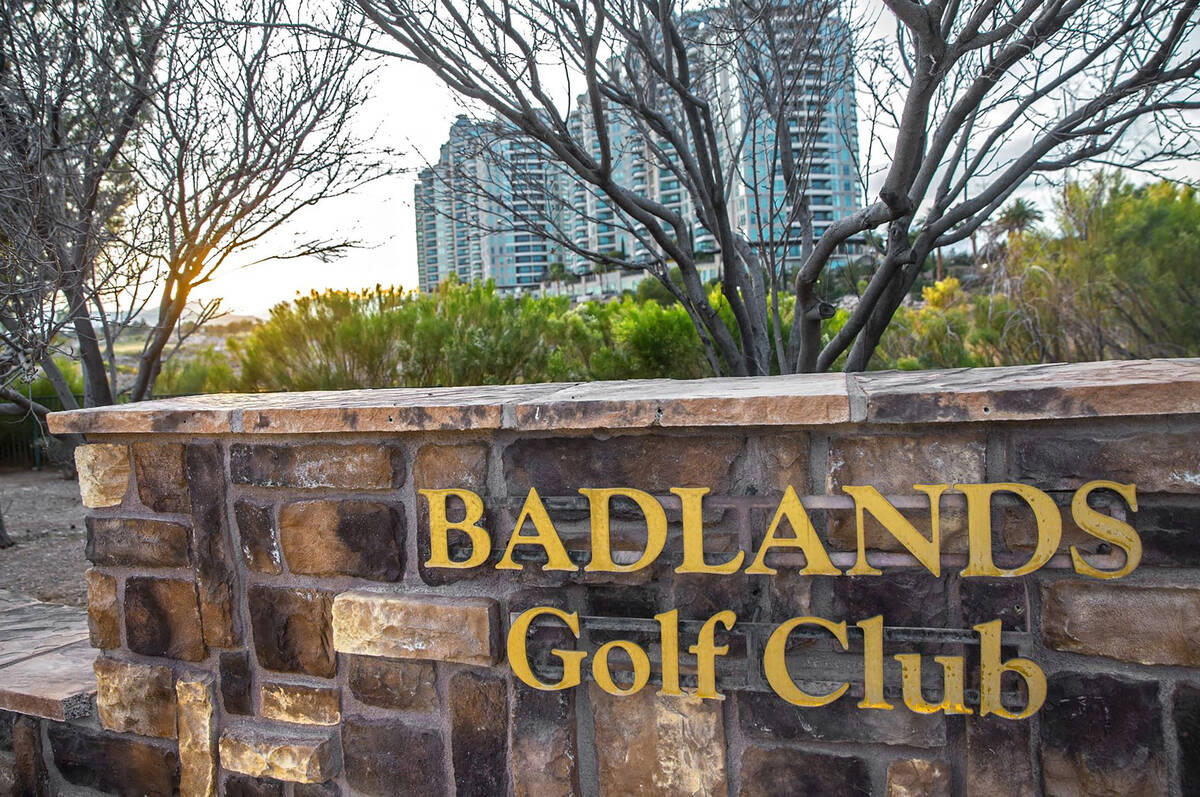EDITORIAL: City’s Badlands embarrassment gets worse
The urban eyesore once called the Badlands golf course sits empty on the city’s west side, a monument to bureaucratic bungling, political pandering and municipal malfeasance. How deep a sinkhole will it become for Las Vegas taxpayers?
The fiasco stems from a landowner’s effort to turn parts of the golf course, closed since 2013, into a residential development. In 2017, the City Council — despite prescient warnings from one member that the move would leave the city in legal jeopardy — turned away the proposal even though it complied with applicable zoning for the area near Alta Drive and Rampart Boulevard. The vote kowtowed to vocal protesters who lived in the upscale Queensridge neighborhood, surrounding much of the 18-hole layout.
Since then, the courts have humbled the city at every turn. The developer, Yohan Lowie of EHB Cos., filed a series of lawsuits regarding city land-use edicts on four different parcels constituting 250 acres. He has prevailed in three of those cases, with a fourth pending, earning judgments totaling more than $235 million — costs to be borne, not by the council members and attorneys who marched down this foolish path, but the beleaguered city taxpayers they dragged along.
On Thursday, the Nevada Supreme Court issued a ruling on the first of the Badlands cases to reach its docket, a suit involving 35 acres that led to a $48 million judgment. As usual, it was bad news for members of the City Council and the lawyers — both in-house and outside counsel — working on the taxpayer dime to advise them. The justices unanimously affirmed the lower court ruling, which found that the city sacrificed the property rights of Mr. Lowie to appease homeowners living near the golf course.
“This case requires us to determine whether the city’s actions destroyed the economic value of the land such that it amounts to a taking” under both the state constitution and the Fifth Amendment, the ruling notes. The justices make quick work of the city’s arguments and conclude that the denials of Mr. Lowie’s applications “and the discussion of those applications at various City Council meetings show no meaningful indication that the city would allow any development on the 35 acres. … When a governmental agency acts in a manner that removes all the economic value from privately owned land, just compensation must be paid.”
Given its track record of futility in this matter, the city’s chances of prevailing in any remaining litigation involving Badlands is one notch above squat. When all is said and done, total liability for this preventable travesty could soar beyond $500 million — more than 70 percent of the city’s 2023 revenue. This is a blight on members of the City Council — Mayor Carolyn Goodman, in particular — and staff who cavalierly chose to roll the dice at the state Supreme Court rather than to back off, settle and cut taxpayer losses. After all, it’s not their money.
The way forward is clear. City officials should fire all the lawyers who didn’t see this coming. They must quickly reach out to Mr. Lowie — if they have any leverage left — and cut a deal to minimize the damage. Then they need to explain to Las Vegas taxpayers where they hope to find millions of dollars to clean up a mess of their own making.
The final step? That’s in the hands of city voters.






















